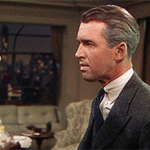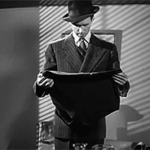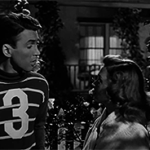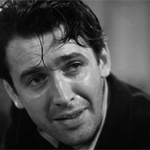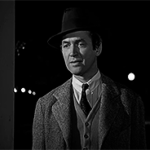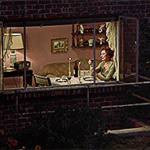Happy Birthday, Jimmy Stewart
→ MAY 20, 1908 – JULY 2, 1997“I’ve sort of gotten into the habit of looking for the vulnerable guy, the guy who makes mistakes, the guy who can’t figure things out all the time but keeps at it.”Against the glossy, escapist backdrop of Depression-era Hollywood — a bright and glittering place densely populated by debonair leading men with strong jaws, commanding voices, and larger-than-life personalities — Jimmy Stewart was an anomaly: thin and gangly with the posture of a rag doll, strange-sounding and awkward, like a character actor who bumbled accidentally into leading man roles. The jarringly natural pre-war Stewart seduced the most popular glamour girls of the screen with little more than some well-timed self-deprecation and insecure declarations of love drawled slowly, his fumbling aw-shucks-that’s-fines winning over the likes of Carole Lombard, Joan Crawford, Claudette Colbert, and Jean Harlow — women whose characters were usually courted by Hollywood’s more stereotypically masculine stars, self-assured, broad-shouldered men whose sweet nothings were confident and smooth. This stark contrast and Stewart’s relatable boy-next-door persona endeared him to his audience, and to this day Hollywood’s most eligible bachelor and premier model plane enthusiast remains one of the most recognisable figures in the history of film.It’s important to remember, of course, that Mr. Stewart went to war, and like so many others came back changed. His most famous and beloved character, It’s a Wonderful Life’s George Bailey, is infused with a rich undercurrent of regret, cynicism, and pain, while his later roles with Alfred Hitchcock — though not outright villains — are complex characters with ambiguous moral compasses. The post-war Jimmy Stewart became skilled at adapting his slow-talking type to a variety of roles, but in the eyes of the public he remains the everyman, the bachelor, the patriot, the grandfather in houndstooth, forever immortalised by the very medium he loved and admired.
“That’s the thing, that’s the great thing about movies. If you’re good and God helps you and you’re lucky enough to have a personality that comes across, you’re giving people little, little tiny pieces of time — pieces of time that they never forget.”

Just another WordPress site
